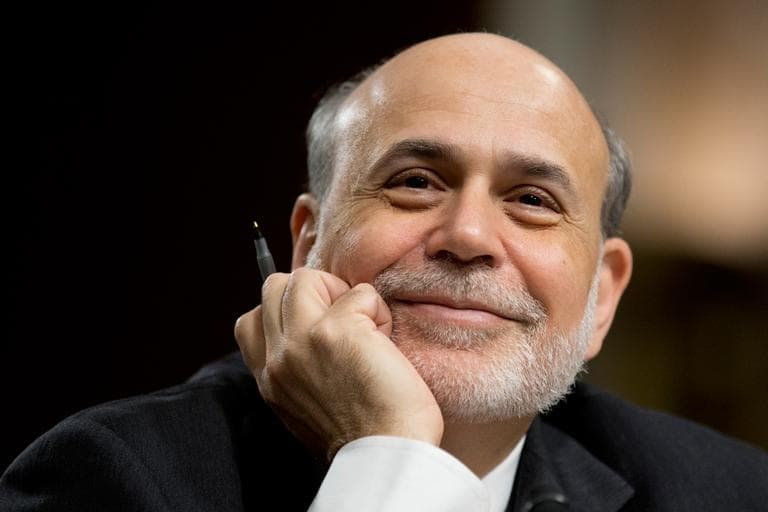Advertisement
Economic Outlook: Are Happy Days Here Again?
ResumeAfter years of tough economic news, the economy seems to be picking up and pulling up interest rates. We look ahead at what the eventual end of rock-bottom interest rates will mean.

It is a pregnant moment in the US economy. Unemployment down a bit. Housing up. Stock market on a tear. Bonds in a tizzy. Everybody watching the Fed. Is this, at last, the return? The revival? We’ve been promised “green shoots” before, and seen things flatline.
This time the optimism and evidence seems stronger, but so does a weird unease. If this is the upturn, what happens to interest rates? To inflation? To the Fed’s towering balance sheet. To your job?
This hour, On Point: the change in the economic weather and whether this is really it… the road to good times.
- Tom Ashbrook
Guests
Robert Barbera, co-director of the Center for Financial Economics at Johns Hopkins University and author of "The Cost Of Capitalism: Understanding Market Mayhem And Stabilizing Our Economic Future."
Martin Feldstein, Professor of Economics at Harvard University and President Emeritus of the National Bureau of Economic Research. He was appointed by President Obama to be a member of the President's Economic Recovery Advisory Board in 2009.
Robert Kuttner, co-founder and co-editor of the American Prospect magazine. Senior fellow at the liberal think tank Demos. Author of "Debtor's Prison: The Politics of Austerity Versus Possibility."
From Tom's Reading List
The Wall Street Journal: The U.S. Economy: Doing Better, Can It Last? -- "You can make an economic forecast complicated. Or you can make it simple. Let's do simple. How is the U.S. economy doing now? Better. What's the near-term outlook? Cloudy. What's the Federal Reserve going to do about it? That depends on whether those clouds give way to sunny skies or it starts to rain again."
The New York Times: This Time, A Growing Economy Stirs Unease — "Those who see a black cloud behind every silver lining can point to plenty of negatives in a good economy. Bond investors will lose money as the value of long-term bonds declines. That will mean that a lot of people are poorer. Banks own a lot of Treasuries, and some of them could suffer as the value of those bonds decline. Perhaps rising interest rates will prompt a sell-off in the stock market. Perhaps they will choke off the recovery in housing."
Washington Post: Interest Rates Are Rising! Here’s Why We Should Be Thrilled. -- "The bond market bears had a pretty spectacular May, as the 10-year rate rose from 1.63 percent on May 1 to 2.15 percent Friday. (The price of bonds moves in the opposite direction of yields). Is it a moment of reckoning that will stamp out the recovery or presage dangerous inflation or massive losses by bond investors? Or is it something more positive? Let’s look at the evidence."
The Wall Street Journal: The Federal Reserve's Policy Dead End — "Quantitative easing, or what the Fed prefers to call long-term asset purchases, is supposed to stimulate the economy by increasing share prices, leading to higher household wealth and therefore to increased consumer spending. Fed Chairman Ben Bernanke has described this as the "portfolio-balance" effect of the Fed's purchase of long-term government securities instead of the traditional open-market operations that were restricted to buying and selling short-term government obligations."
This program aired on June 3, 2013.